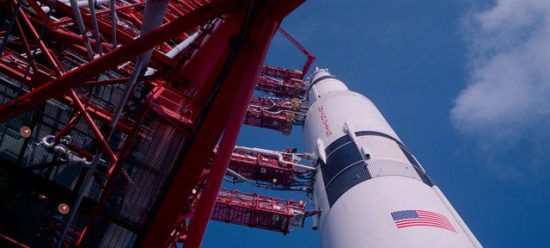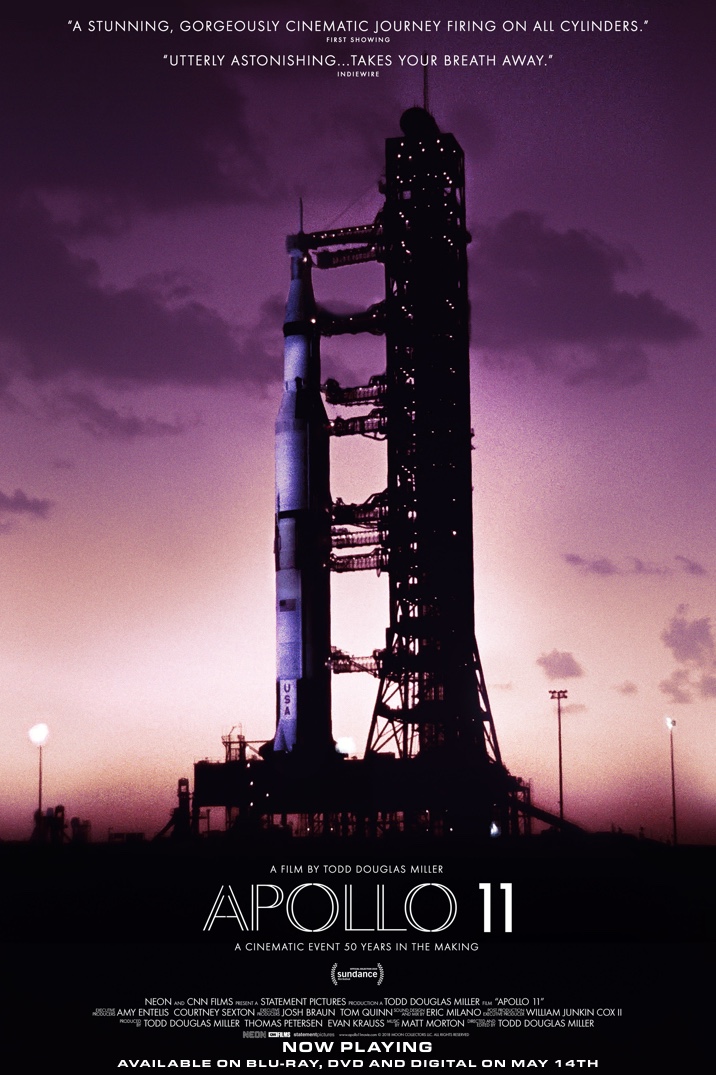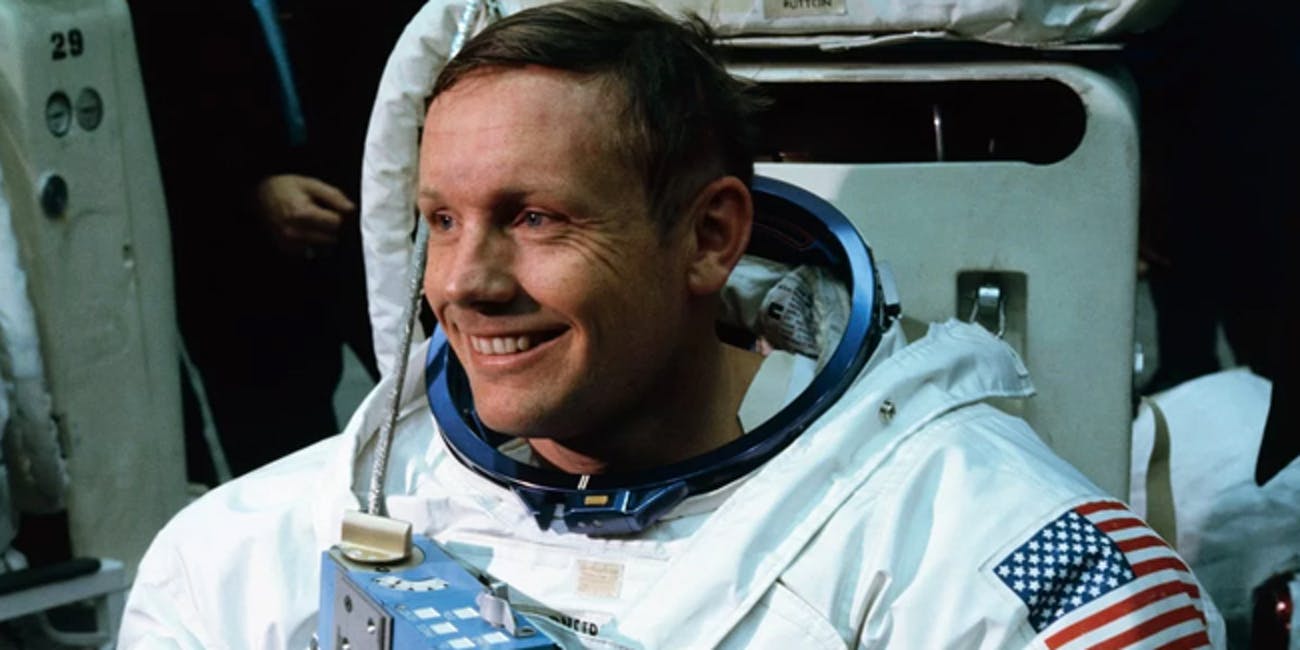By Glenn Dunks

It’s amazing to think that there can still be so much previously unseen footage from the biggest television event in history, and yet here we are at the 50th anniversary of the moon landing with a bus-load of new documentaries claiming new takes, new interviews and, yes, new footage. Don’t ask me what exactly is new to us, though. I watched three such films within days of each other and I, at times, felt like I was going nuts: the subject of one is a talking head in another who happens to be in different footage in the other movie, which is probably just a different angle to footage a few feet to the left in the first movie!
And on top of that, if you’ve watched even just one or two other works about the American space program – whether that be documentaries like For All Mankind, or dramatic features like Apollo 13 – then you will already be familiar with a lot, not to mention the moon landing itself. It’s exhausting. I even saw another moon landing documentary on the tele while I was at the gym the other night. And then there is the six-hour PBS documentary that I, quite frankly, just don’t know if I have the patience for after this triple-play. The three films I have watched all do have something in them that is ultimately worth the time. Especially if you’re in a particularly lunar mood on this landmark date. The best of the three, the most cinematic and effectively rousing, is Todd Douglas Williams’ Apollo 11…
 Like the aforementioned For All Mankind, an Oscar nominee in 1989 for the moon landing’s 20th anniversary, Apollo 11 is compiled entirely out of archival footage from NASA and the achievement is equally special. Williams, acting as his own editor, cuts all the fat from the narrative of the moon-landing mission, beginning on the day of the launch with no unnecessary divergences into extensive backstory and historic precedent. It’s a refreshing take that is still rather radical as seen by the other titles I’m going to be looking at.
Like the aforementioned For All Mankind, an Oscar nominee in 1989 for the moon landing’s 20th anniversary, Apollo 11 is compiled entirely out of archival footage from NASA and the achievement is equally special. Williams, acting as his own editor, cuts all the fat from the narrative of the moon-landing mission, beginning on the day of the launch with no unnecessary divergences into extensive backstory and historic precedent. It’s a refreshing take that is still rather radical as seen by the other titles I’m going to be looking at.
The footage itself not only remains remarkable for the visions of its accomplishments, but all over again it strikes me the sheer compositions that NASA's cameras were able to capture, placed in just the right places to make images that are both iconic and beautiful. And on top of that, its restoration is pristine. There is a richness in the colours here that is simply unable to recreated. Perhaps even greater is the film’s achievement as a work of sound design that engulfs those familiar sharp echoing beeps and astronaut conversations within a soundscape that juxtaposes the chaos and the stillness with an impressive score by Matt Morton (a relative newcomer to film score composition, his only other feature credit being Todd Douglas Williams’ own debut, Dinosaur 13).
I was lucky to watch the film in IMAX — true, genuine, actual real proper IMAX — and it allows for a sense of awe and gets closer to replicating the scope of these moments than any other I’ve seen. It’s an impressive film with a strong cinematic spine to it. If you’re able to catch it on a big screen, it's a must.

More traditional in its structure is Paul J. Hildebrandt’s First to the Moon that nonetheless offers audiences the history around the earlier Apollo 8, which was the first manned mission to orbit the moon. Focusing on this less-observed part of the space race is wise and Hildebrandt — who, like Williams, also edits — finds an entertaining pace that makes great use of its subjects with their stories, recollections and anecdotes.
Animations representing moments that couldn’t be caught on film are a little bit rough and ultimately feel unnecessary, but while its use of the famous imagery here could feel repetitive – and it’s true audiences have likely seen them before – but the knowledge that these were the first time these images were actually viewed by the human eye adds weight.

The final film is Armstrong, which comes a year after First Man divided audiences (I was cold on Damien Chazelle’s film). In a strange twist, David Fairhead’s film suffers from similar problems. By the very nature of its focus, Armstrong lives and dies on an audience’s response to Neil Armstrong and while the documentary does a nice job of showing us Armstrong’s version of charisma, it still can’t quite avoid the problem that Armstrong was a very interior person and while the documentary utilises his stoically written diaries for narration (spoken by Harrison Ford, a smart and appropriate choice on a multiple levels), much of the story falls on his family and colleagues and this lack of deeper probing means that the movie falls into retelling of the NASA mission.
Which wouldn’t be so bad if it wasn’t something that wasn’t already a fairly well-trodden path across the last 50 years let alone just in 2019. Unfortunately for space-lovers, Fairhead’s documentary doesn’t offer anything new (other than an original song written by Neil Armstrong’s son). Neil’s very decent and humble humanity isn’t so much a liability to storytelling, but this documentary doesn’t find a way to make it fresh.
Now, let's wait for another major anniversary before we get some more, yeah?

Release: Apollo 11 and First to the Moon are widely available on home entertainment (although I suspect the former will get a theatrical re-release for awards season). Armstrong is currently in limited release.
Oscar chances: Apollo 11 would be a definite contender even if it wasn’t the current box office champ for documentaries this year (it made just a smidge under $9 mil and may reach that if it’s getting a theatrical rerelease, especially in IMAX). Space docs aren’t always a given; sure, For All Mankind was nominated (it lost to Common Threads), but In the Shadow of the Moon was a noteworthy miss in 2007. I would currently be predicting it.